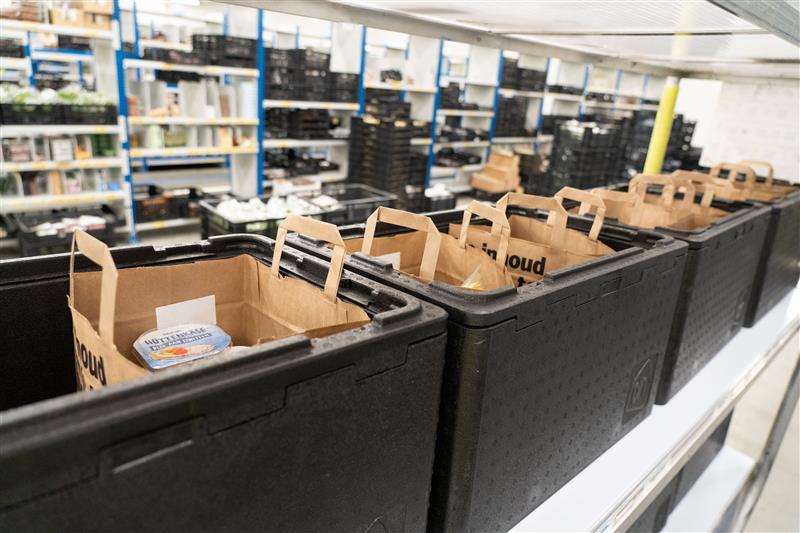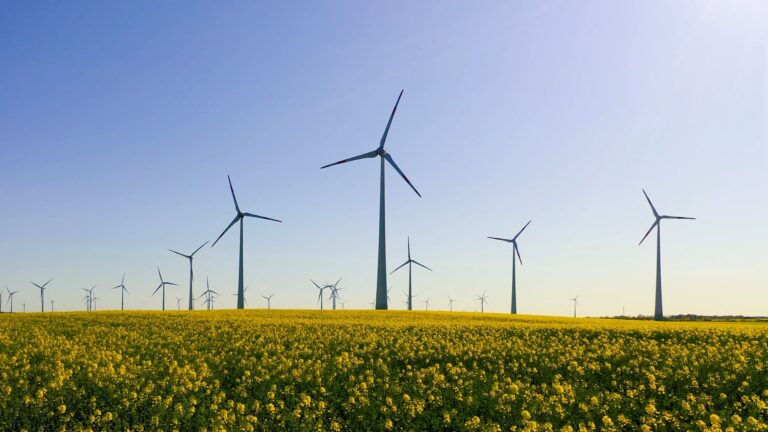
- Albert Heijn transports groceries for home deliveries in vacuum-insulated totes and with special ice packs from va-Q-tec.
- Transports are rendered more environmentally friendly and cost-efficient by using less energy, no refrigerated delivery vehicles, dispensing of dry ice, and using reusable totes.
- Roughly 100,000 va-Q-tec boxes are used, and up to 9,000 metric tons of CO2 emissions are prevented every year.
Würzburg, November 4th, 2024. Albert Heijn, the market-leading Dutch supermarket chain from Ahold Delhaize, uses vacuum-insulated reusable totes from va-Q-tec for the home delivery of groceries. The company va-Q-tec from Würzburg is an expert of sophisticated solutions and services for thermal energy efficiency, as well as for temperature-controlled supply chains. The use of passive totes from va-Q-tec renders these home deliveries of fresh and frozen products from Albert Heijn to be more sustainable and cost-efficient. The totes allow for constant temperatures without needing an external energy supply during the transport and up to the delivery at the customer. The use of actively operated refrigerated delivery vehicles, as well as the use of dry ice, are avoided. Packaging waste and product losses are also reduced, particularly during the summer months.
“We are very happy to have gained such an important partner with Albert Heijn for our sustainable transport solutions. The totes were specifically developed for transporting groceries. As a company, we share the vision of an energy-saving and environmentally friendly supply system. Albert Heijn is a pioneer for this vision and setting an exemple for sustainable grocery deliveries,” says Marc Moelter, Head of Sales Food at va-Q-tec.
Up to 9,000 metric tons of CO2 emissions are saved
Albert Heijn carries out several thousand grocery transports in the Netherlands every week to private households. The company has set itself clear sustainability targets for these deliveries. The use of va-Q-tec totes saves roughly 9,000 metric tons of CO2 emissions a year. This corresponds roughly to the amount of climate-damaging CO2 emissions released by 6,000 diesel passenger cars a year (consumption: 6 l/100 km; annual mileage: 10,000 km).
Overall, roughly 100,000 totes from va-Q-tec are used for the transport of groceries from Albert Heijn. The totes are unloaded directly at the customer’s location, returned, and after being cleaned at Albert Heijn, used again. If the demand increases, additional transport totes can be manufactured in the plants in Würzburg and Kölleda (Thuringia) on short notice, and then delivered to Albert Heijn in the Netherlands and other countries.
Use of special ice packs increases safety
In order to transport frozen food, in particular at a safe temperature, special ice packs also developed by va-Q-tec are used. The so-called PCMs (Phase Change Materials) maintain a constant temperature in the vacuum-insulated totes for a long time. The PCMs are filled with different liquids that have been optimized for the different necessary temperature ranges.
The use of PCMs enables operating without dry ice, thereby increasing safety during the loading of groceries and during transport. Due to its extreme cold, dry ice can cause injuries to the delivery personnel or, in rare cases, gaseous CO2 released by dry ice can lead to asphyxiation. The use of transport totes from va-Q-tec enables Albert Heijn to save 9,000 metric tons of dry ice per year – an important step towards the sustainable supply chain of groceries.
